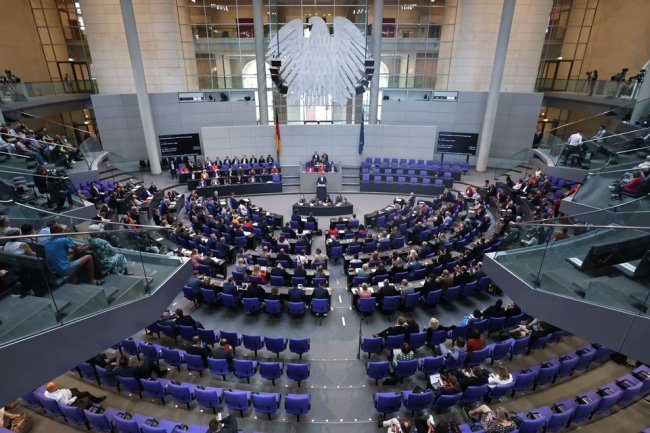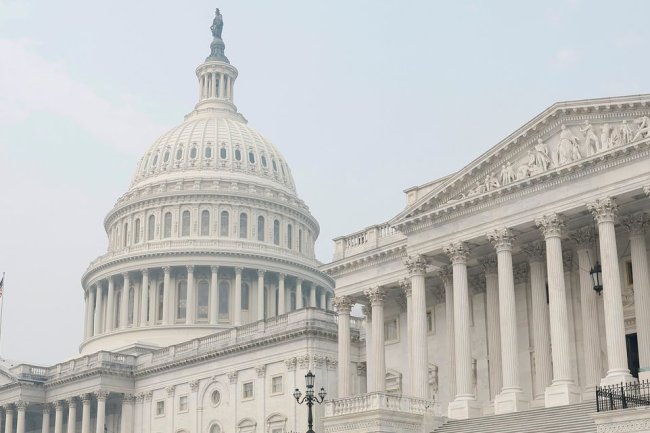Is Uncle Sam Still the Best Borrower?
A credit warning in the Treasury market. By James Freeman Aug. 2, 2023 1:14 pm ET U.S. Treasury Secretary Janet Yellen checks out the merchandise while visiting a factory assembling electric scooters in Hanoi, Vietnam last month. Photo: Hau Dinh/Associated Press Grades handed out by credit ratings agencies are only opinions and have at times been infamously wrong. But the reckless and historic rise in federal debt is a fact. Matt Grossman and Andrew Duehren report for the Journal: Fitch Ratings downgraded the U.S. government’s credit rating weeks after President Biden and congressional Republicans came to the brink of a historic default, warning about the growing debt burden and political dysfunction in Washington. The downgrade, the first by a major ratings firm


U.S. Treasury Secretary Janet Yellen checks out the merchandise while visiting a factory assembling electric scooters in Hanoi, Vietnam last month.
Photo: Hau Dinh/Associated Press
Grades handed out by credit ratings agencies are only opinions and have at times been infamously wrong. But the reckless and historic rise in federal debt is a fact. Matt Grossman and Andrew Duehren report for the Journal:
Fitch Ratings downgraded the U.S. government’s credit rating weeks after President Biden and congressional Republicans came to the brink of a historic default, warning about the growing debt burden and political dysfunction in Washington.
The downgrade, the first by a major ratings firm in more than a decade, is evidence that increasingly frequent political skirmishes over the U.S. government’s finances are clouding the outlook for the $25 trillion global market for Treasurys. Fitch’s rating on the U.S. now stands at “AA+”, or one notch below the top “AAA” grade.
Dan Clifton of Strategas writes in a note to clients this morning:
In 2011, we ridiculed S&P for downgrading the US credit rating for passing legislation that cut spending by $2 trillion and reined in the excesses from the financial crisis.
The US had low inflation, low interest rates, and a debt-to-GDP ratio that would be stabilized by the budget changes at the time.
Today the dynamics are very different.
The US has a rising net interest cost for the first time in 35 years with a debt-to-GDP ratio over 120%.
The debt ceiling deal did little to rectify the US fiscal situation.
We are now in a rising rate environment, which makes debt issuance more costly.
The US is now at an inflection point of net interest costs hitting 14% of tax revenue, a point at which financial markets begin to force austerity on US policymakers.
Somebody has to do it.
***
Annals of Pandemic Panic
The Journal’s Douglas Belkin, Ben Chapman and Ben Kesling report:
The knock-on effect of years of remote learning during the pandemic is gumming up workplaces around the country. It is one reason professional service jobs are going unfilled and goods aren’t making it to market. It also helps explain why national productivity has fallen for the past five quarters, the longest contraction since at least 1948, according to the U.S. Labor Department... Employers are spending more time and resources searching for candidates and often lowering expectations when they hire. Then they are spending millions to fix new employees’ lack of basic skills.
Talent First, a business-led workforce-development organization in Grand Rapids, Mich., is encouraging employers to stop trying to hire based on skill. Instead, hiring managers should look for a willingness to learn, said President Kevin Stotts.
“Employers are saying, ‘We’re just trying to find some people who could fog the mirror,’ ” Stotts said.
Since 2020, when the pandemic began and remote learning moved students out of schools and into virtual classrooms, the pass rates on national certifications and assessment exams taken by engineers, office workers, soldiers and nurses have all fallen.
Meanwhile, in the Boston Globe Christopher Huffaker reports similarly depressing data about the panicked Covid-era spending on K-12 education:
When the American Rescue Plan Act passed in March 2021, hopes were high across the country that the much-needed influx of funds to public schools could help students recover from months of remote learning, and also fill holes in school infrastructure the pandemic exposed, like outdated HVAC systems.
But with a year remaining to spend the $2.6 billion in total relief funds that went to Massachusetts schools, it’s unclear how far those dollars have gone, and what they have achieved. State test scores from the 2021-22 school year showed a partial recovery, but more recent national data from the assessment and research organization NWEA showed a concerning reversal: After progress in the prior year, scores backslid in 2022-23... Absent further recovery, students stand to take major hits to lifetime income and other outcomes...
***
Store Guests Were Doing More than Fogging the Mirror
Debbie Kelley reports for the Denver Gazette:
Excessive vandalism, theft of merchandise and use of illegal substances such as methamphetamine inside fitting rooms at 42 Goodwill stores across Colorado led the Colorado Springs-based nonprofit to permanently close private dressing areas to customers and closely monitor how the decision is affecting clothing sales.
“The rise in theft, vandalism and substance abuse has been so markedly on the increase we really don’t have any other alternative but to close those down, if and until we can find we can turn a corner on those issues,” said Bradd Hafer, spokesman for Goodwill of Colorado.
The nonprofit uses revenue from its social enterprise stores to fund job placement, training and education and adaptive programs for disabled people.
***
Bye-ku for Another Top Credit Rating of the U.S.
The giant addict,
Drunk on spending, checks again
Into AA+.
--Anonymous
***
James Freeman is the co-author of “The Cost: Trump, China and American Revival” and also the co-author of “Borrowed Time: Two Centuries of Booms, Busts and Bailouts at Citi.”
***
Follow James Freeman on Twitter.
Subscribe to the Best of the Web email.
To suggest items, please email [email protected].
(Teresa Vozzo helps compile Best of the Web.)
***
What's Your Reaction?

















